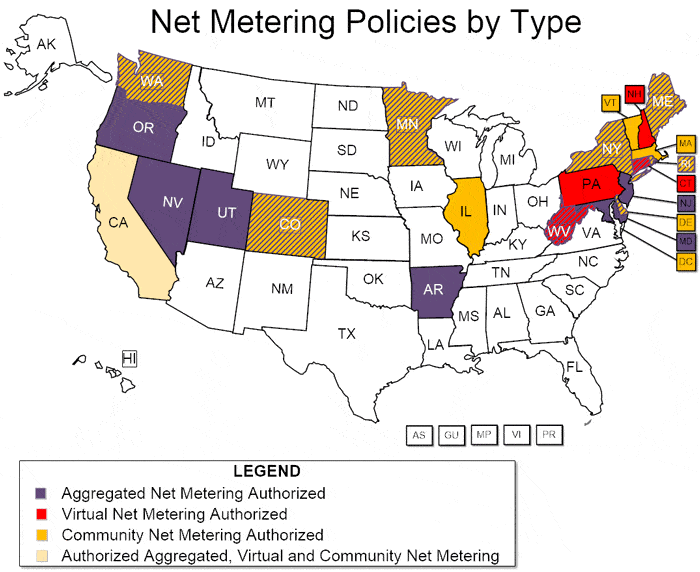

Aggregated Net Metering
Aggregated net metering allows a property owner with multiple meters on one property or adjacent properties to implement net metering, such as with a group of university buildings or adjacent farm properties. At least 16 states have authorized aggregated net metering, including Arkansas, California, Colorado, Connecticut, Delaware, Maine, Maryland, Minnesota, Nevada, New Jersey, New York, Oregon, Rhode Island, Utah, Washington, and West Virginia.
Virtual Net Metering
Virtual net metering expands aggregated net metering, allowing a property owner with multiple meters to distribute net metering credits to different individual accounts, such as tenants in a multi-family property or condominium owners. Owners of non-adjacent properties can also use credits from production on one property for consumption at another. At least five states have authorized virtual net metering, including California, Connecticut, New Hampshire, Pennsylvania, and West Virginia.
Community Net Metering
A third concept, community net metering (also known as neighborhood net metering, community-based renewable energy, or community solar), allows multiple users to purchase shares in a single net-metered system, either located on-site or off-site. For example, this could take the form of residents in a community or condominium buying shares in a medium-sized solar array. At least 11 states and Washington, D.C., have authorized community net metering or pilot projects: California, Colorado, Delaware, Illinois, Massachusetts, Maine, Minnesota, New York, Rhode Island, Vermont, and Washington.
